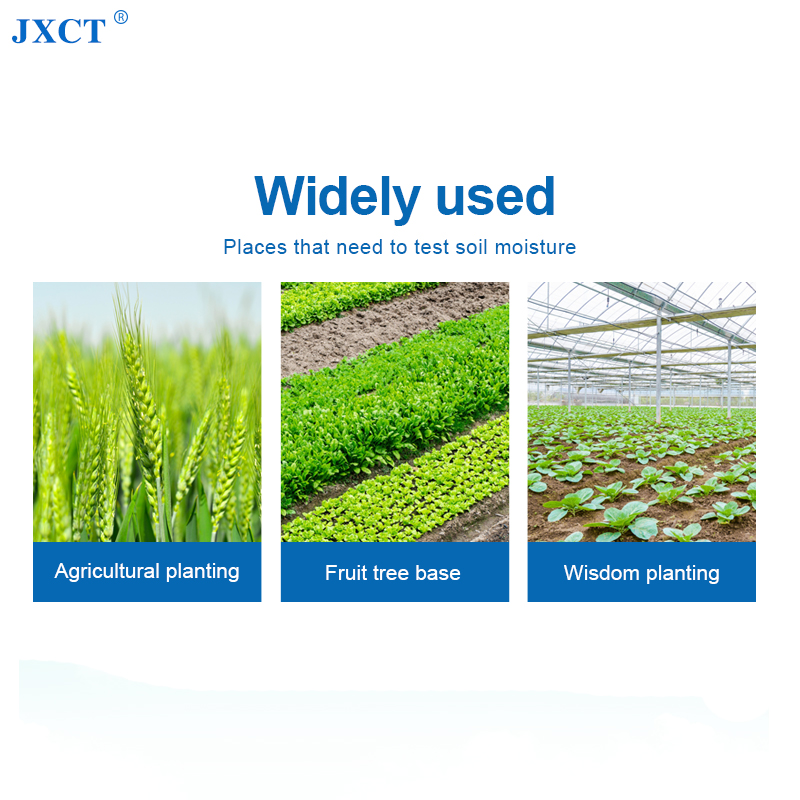1.Understand the soil hygrometer sensor
A soil hygrometer sensor is an essential device used in agriculture and water management to measure soil moisture levels accurately. By providing real-time data on soil moisture content, this sensor plays a crucial role in optimizing irrigation practices, enhancing crop yields, and conserving water resources. This article delves into the functionality and significance of soil hygrometer sensors, highlighting their impact on sustainable agriculture and efficient water management.

Functionality and Design
A soil hygrometer sensor measures soil moisture content by utilizing electromagnetic or capacitive sensing techniques. The sensor consists of probes or electrodes that are inserted into the soil, detecting the electrical conductivity or dielectric constant of the soil. These parameters are directly related to the moisture content of the soil.

The design of a soil hygrometer sensor can be as simple as a single probe or as complex as an array of multiple probes distributed at different depths. Sophisticated sensors may also incorporate additional features such as temperature and salinity measurements, enhancing the accuracy of the data collected.
Applications in Agriculture
Optimal soil moisture levels are critical for plant growth and crop yield. Soil hygrometer sensors enable farmers to monitor and manage irrigation practices more effectively, resulting in improved water-use efficiency and reduced water wastage. By measuring soil moisture content at different depths within the root zone, farmers can ensure that crops receive adequate water while avoiding overwatering, which can lead to waterlogging and nutrient leaching.

Additionally, soil hygrometer sensors play a vital role in precision agriculture, enabling farmers to make data-driven decisions regarding irrigation scheduling, fertilizer application, and pest management. By providing real-time information on soil moisture, these sensors enable timely interventions, helping farmers optimize crop growth conditions and minimize water and resource wastage.
Impact on Water Management
Water scarcity is a global challenge, and efficient water management is crucial for sustainable agriculture and environmental conservation. Soil hygrometer sensors contribute significantly to water management by enabling precise irrigation practices. By ensuring that water is applied only when necessary, these sensors help conserve water resources and reduce the overall demand for irrigation water.
Furthermore, soil hygrometer sensors play a pivotal role in water resource planning and monitoring. By gathering data on soil moisture content over time, these sensors enable water resource managers to assess the water-holding capacity of the soil, predict drought conditions, and make informed decisions regarding water allocation for various purposes such as agriculture, industry, and residential use.
Integration with IoT and Data Analytics
Advancements in technology have led to the integration of soil hygrometer sensors with the Internet of Things (IoT) and data analytics platforms. This integration enables remote monitoring of soil moisture levels and seamless data collection. Farmers can access real-time moisture data through mobile applications or web-based interfaces, allowing for timely decision-making irrespective of geographical location.
Moreover, the combination of soil hygrometer sensors with data analytics facilitates the development of predictive models for irrigation scheduling and crop management. By analyzing historical moisture data, weather patterns, and crop water requirements, farmers can optimize irrigation schedules, conserve water, and enhance crop productivity.
Conclusion
Soil hygrometer sensor revolutionize agriculture and water management by providing real-time, accurate data on soil moisture content. These sensors contribute to sustainable agriculture practices by optimizing irrigation, maximizing crop yields, and conserving water resources. Furthermore, by integrating with IoT and data analytics, soil hygrometer sensors enable remote monitoring and data-driven decision-making. Embracing soil hygrometer sensor technology is a significant step towards achieving efficient water management and sustainable agricultural practices.